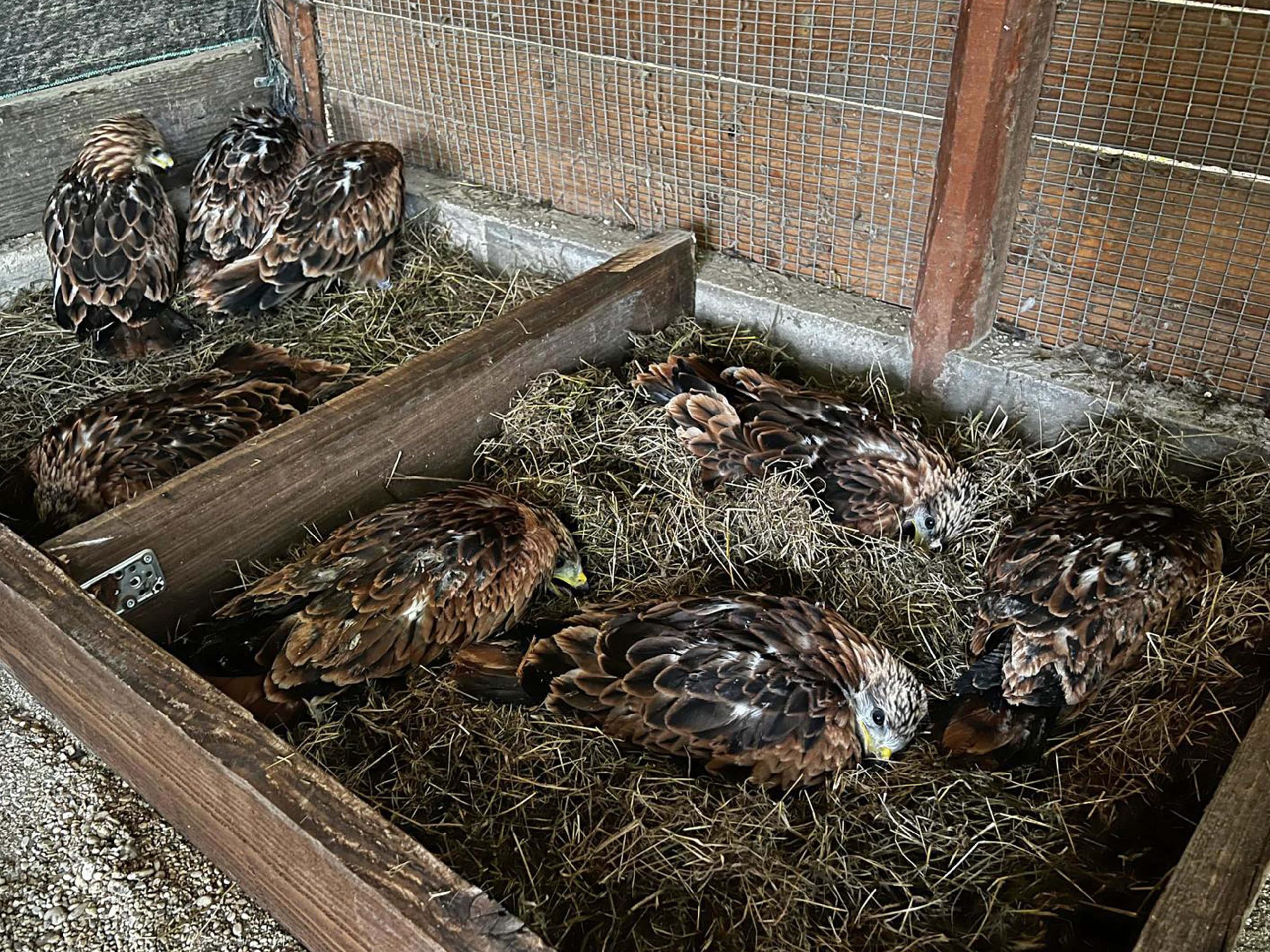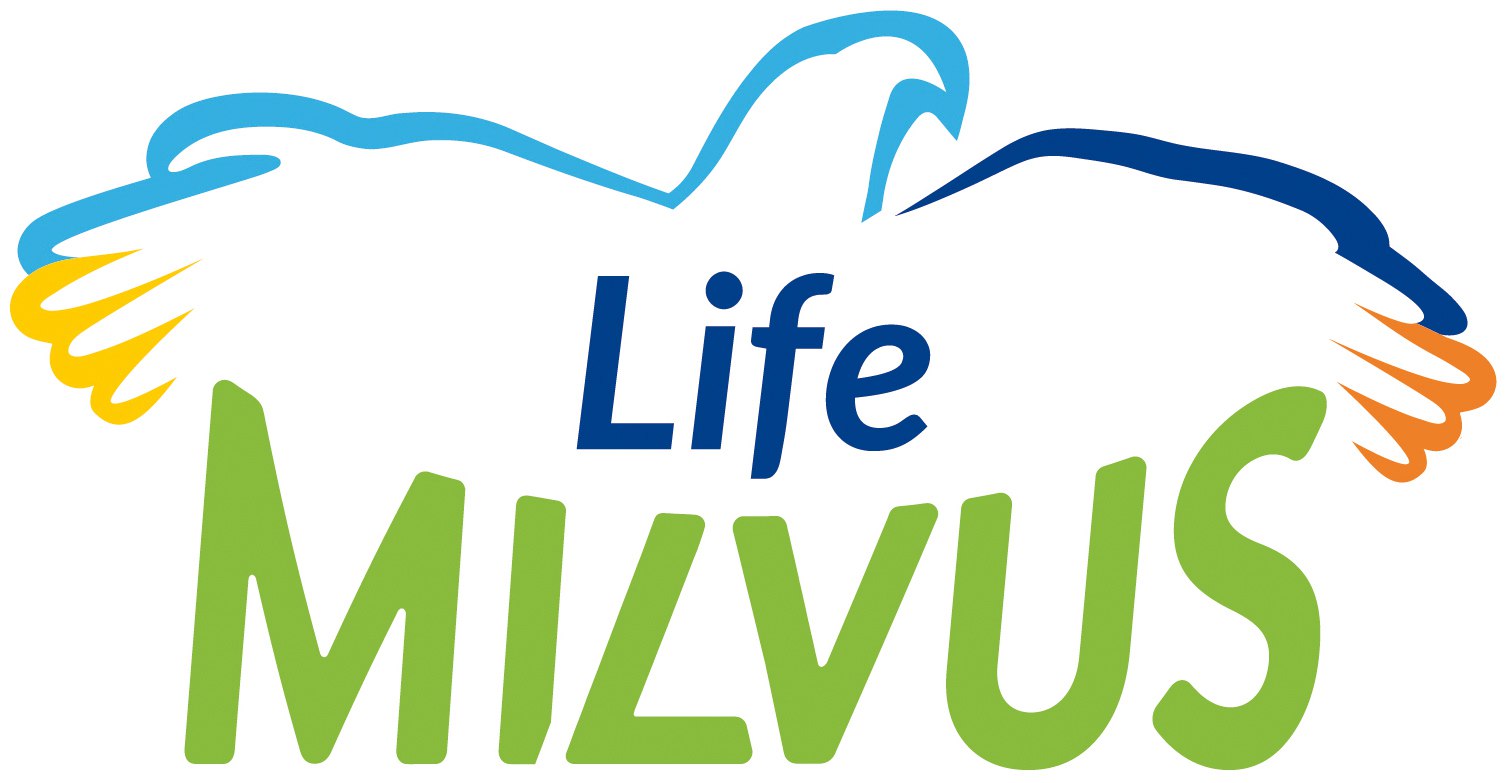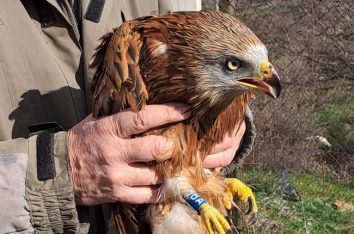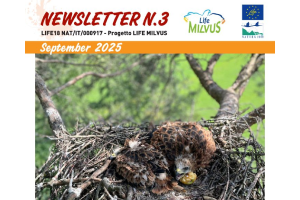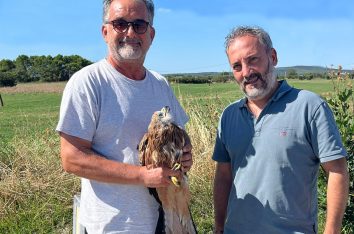Here they are, at last: eight young kites born in Switzerland are temporarily housed in the Aspromonte National Park's acclimatization center and will stay here for about a month before being free to fly.
On June 23, 2023, the young birds of prey were placed in two aviaries overlooking the wild and beautiful Amendolea River after a two-day, 1,700-kilometer-long drive that took them from the Canton of Fribourg to Calabria.
Transferring them were Luca Pelle, contact person for the LIFE MILVUS project and head of the Park's Nature Conservation and Biodiversity Service Manager, and ornithologist Pierpaolo Storino of the Calabrian Ornithological Station.
Born about a month and a half ago in the canton of Fribourg, the red kites were taken from their nests by a team of Swiss ornithologists and will be released in Aspromonte at the end of July, having acclimatized and completed their growth under the watchful eye of two cameras that allow the LIFE MILVUS team to monitor their health and behavior inside the aviaries.
These will be the first young specimens to be released in the park for the repopulation program carried out under the LIFE MILVUS project; many more will follow in the years to come.
The translocation of the red kites was made possible thanks to the irreplaceable collaboration of ornithologist Adrian Aebischer, an expert on the species as well as a scientific assistant to the Canton of Fribourg. The ornithologist supported the Park Authority in the authorization procedures with the Swiss authorities and coordinated the field operations for monitoring the nests and taking the young animals, assisted by other ornithologists and tree climbers: Pascal Grand, Christian Grand, Valentjin van Bergen, Paul Ducry and Henry Vigneau.
The young were taken from the nests at the age of about 4 to 5 weeks by the Swiss ornithologists and, thanks to the willingness of the Natural History Museum of Fribourg, they were housed in the Museum's recovery center before transfer, under the care of Caroline Pittet, Boris Baeriswyl and Pascal Schoepfer.
The bureaucratic rigmarole of obtaining the necessary permits was complex, complicated by the fact that Switzerland is a non-EU country, but the Park Authority was able to count on the support of the Canton of Fribourg, the Swiss Federal Office for the Environment, the Swiss Federal Veterinary Office, the Italian Ministry of Foreign Affairs and the CITES Commission of the Italian Ministry of the Environment. So that the kites could be regularly transferred to Italy, the Veterinary Service of the Reggio Calabria Provincial Health Authority also collaborated.
On June 22, the red kites left Freiburg and, after a stop in Ponte Chiasso to clear customs formalities, thanks to the willingness of the Ente Monti Cimini were able to feed and spend the night at the Wildlife Recovery Center of the Lago di Vico Reserve, entrusted to the care of CRAS manager Giampiero Tirone and the staff working under the LIFE LANNER - LIFE18 NAT/IT/000720 project (Veronica Cippitelli and Damiano Antonelli).
Now, in aviaries in Aspromonte National Park, they are being cared for by staff from the Cooperativa Tutela dell'Aspromonte, which also built the acclimatization structures, and by ornithologists from the Calabrian Ornithological Station. It will be the latter who will constantly monitor the behavior and movements of the kites once they are released, thanks in part to the small GPS devices with which they will be equipped.
Supporting the park in all phases of the reintroduction is the CERM Centro Rapaci Minaci Threatened Association, which has long experience with the species and, in particular, coordinated its reintroduction in Tuscany.
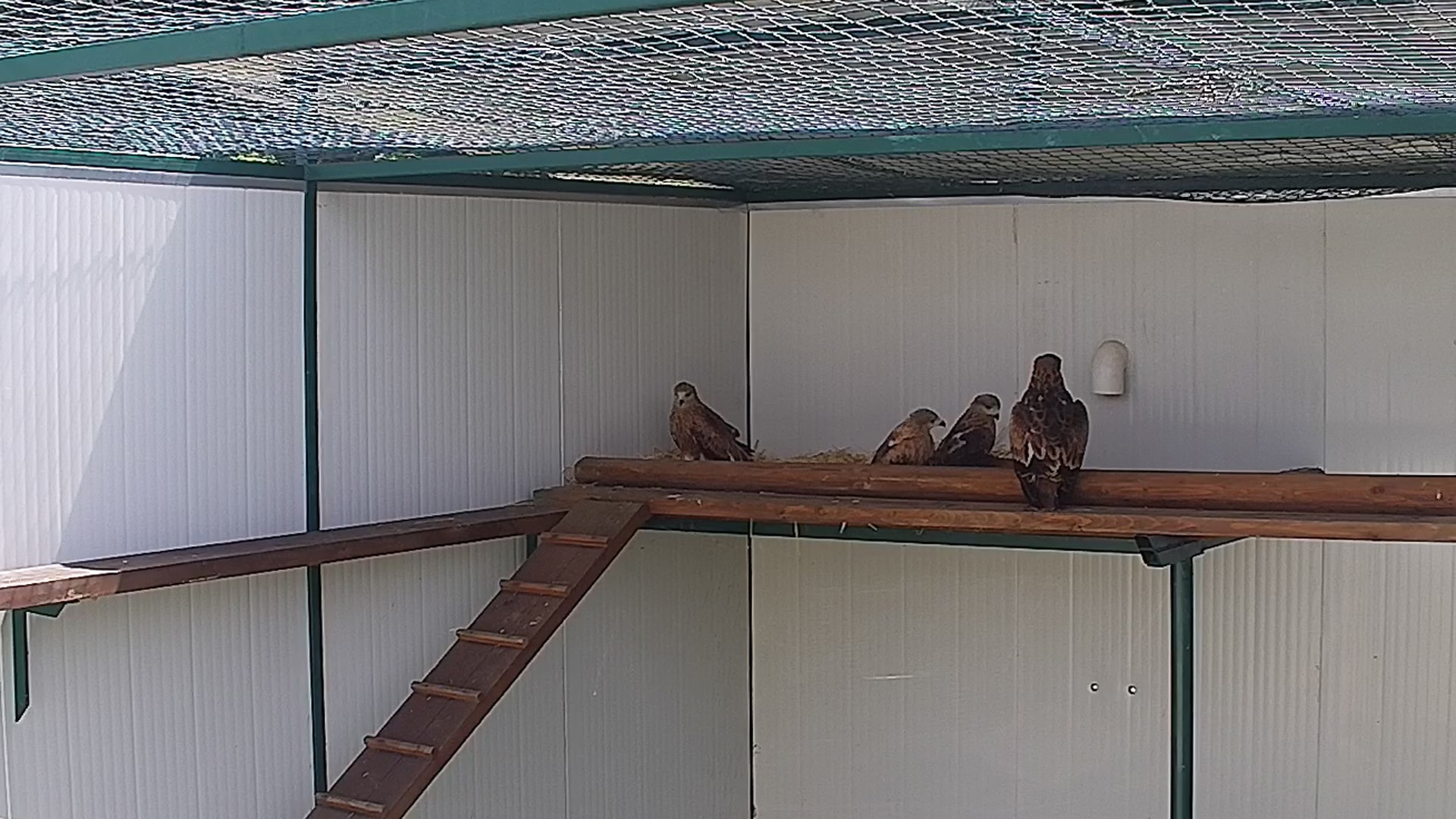
One of two acclimatization aviaries in Aspromonte National Park.
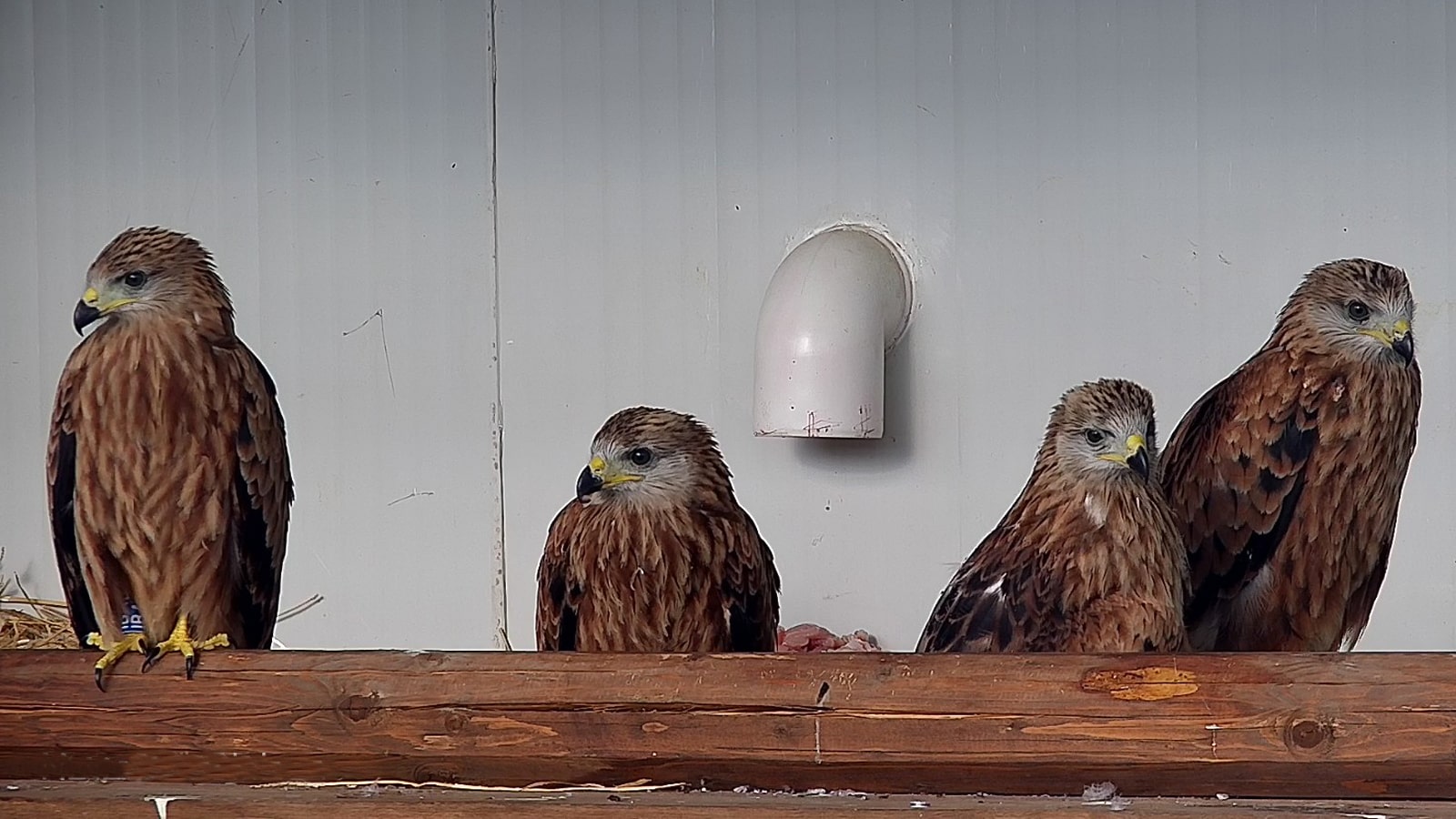
Red kites in one of two acclimatization aviaries in Aspromonte National Park
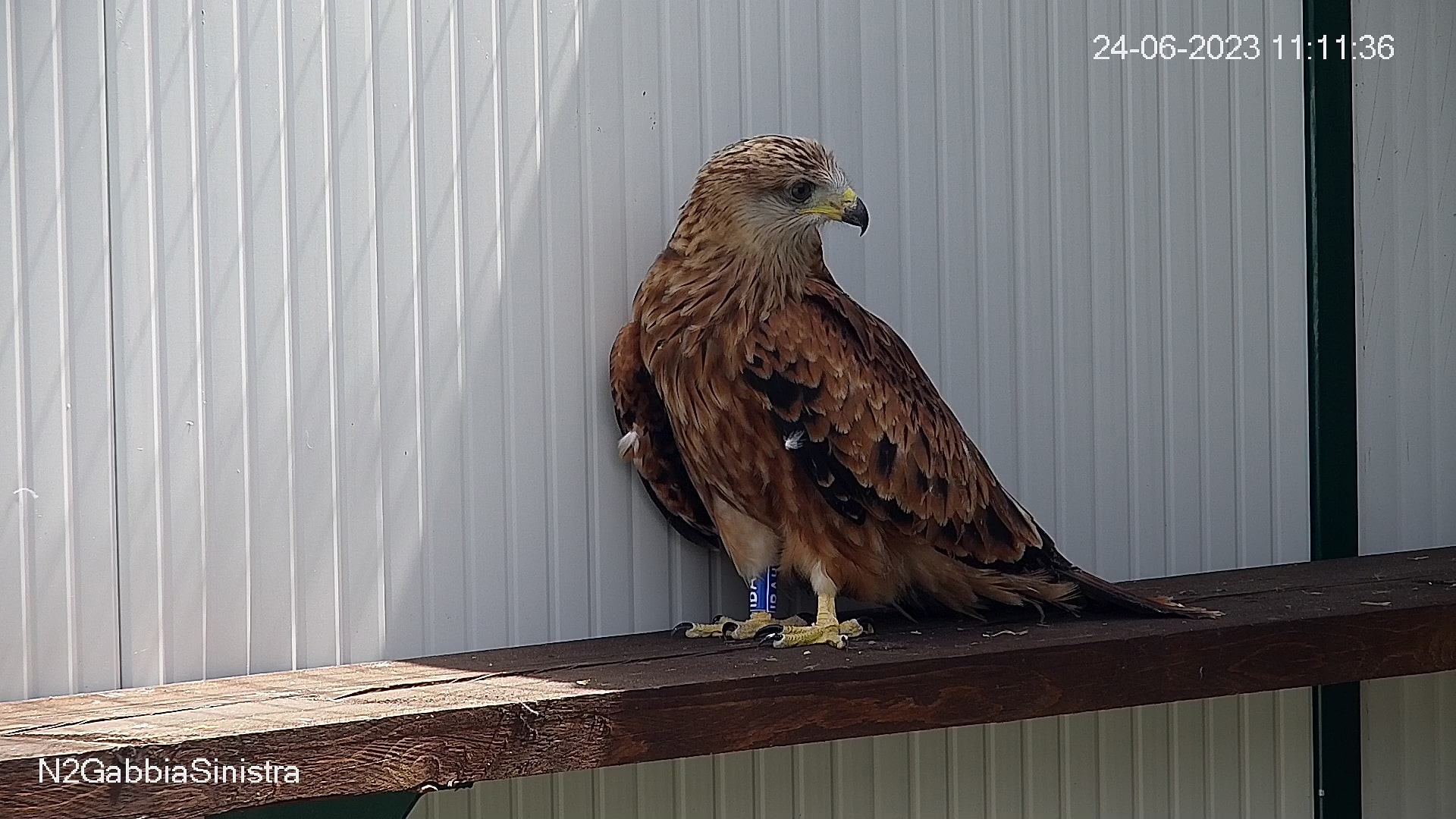
Young red kite in an acclimatization aviary in Aspromonte National Park
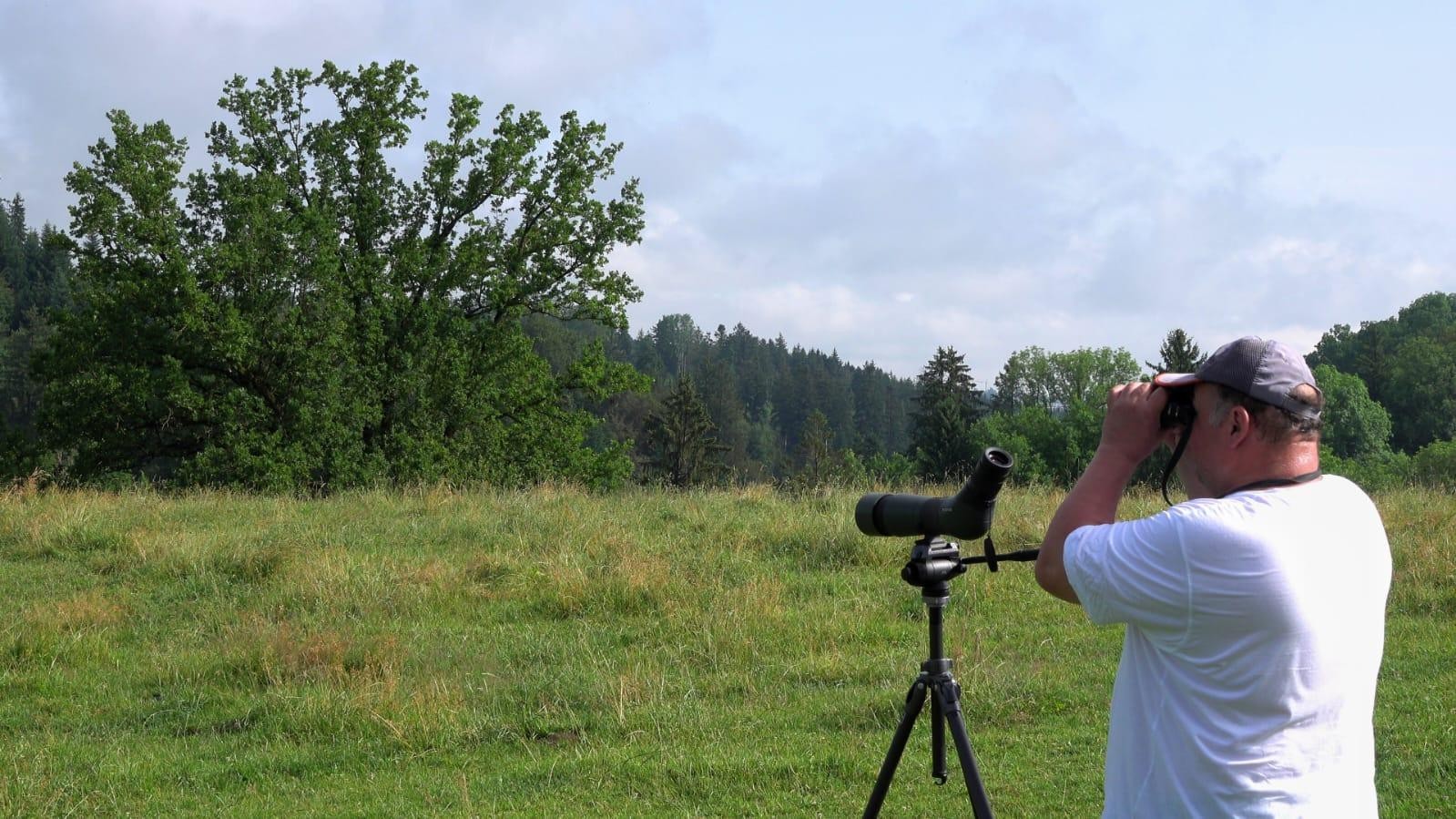
Dr. Aebischer monitors a nest in the canton of Fribourg (photo A. Losacco)
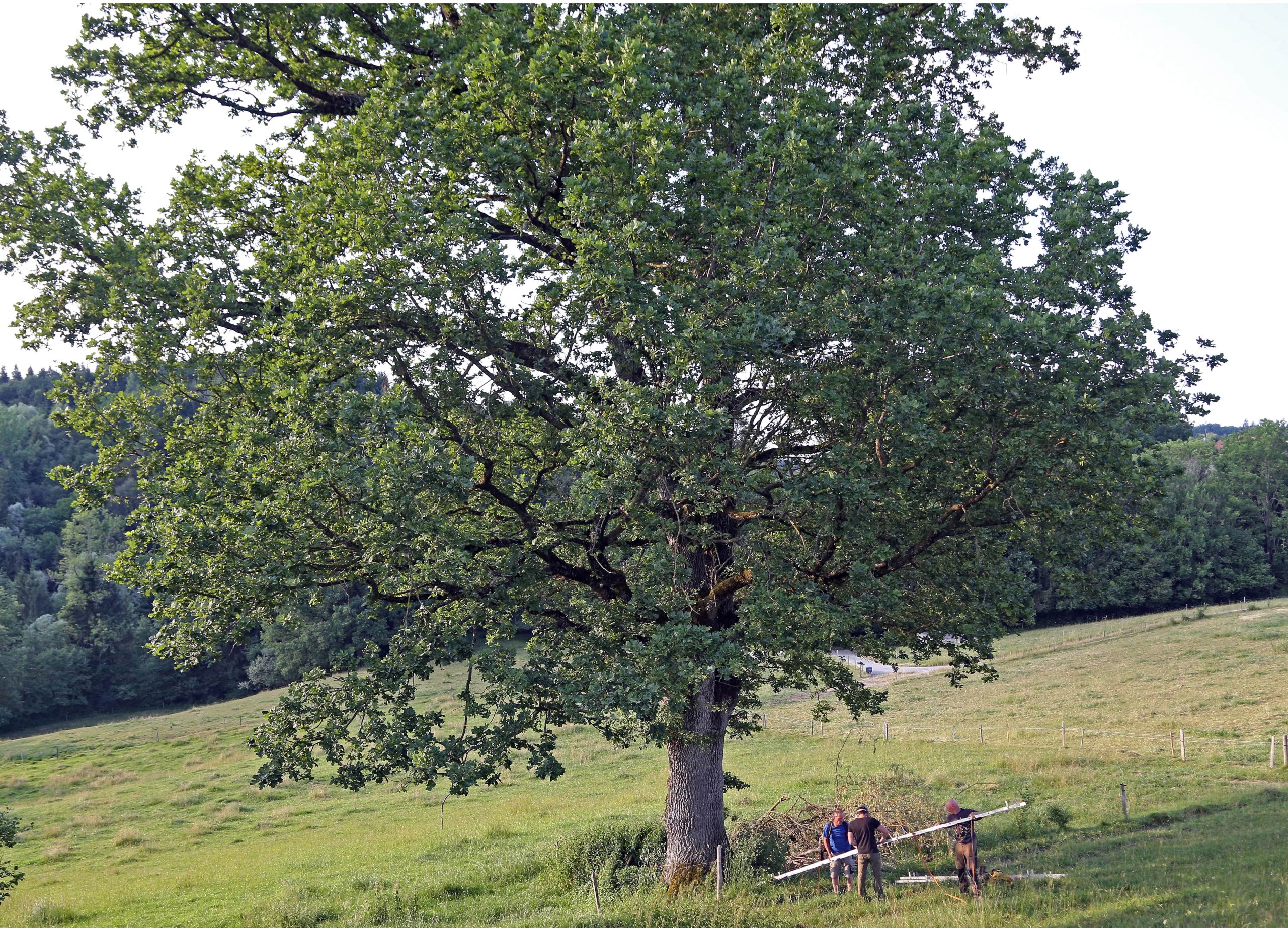
Tree climbers prepare to reach a nest in the canton of Fribourg (photo A. Aebischer)
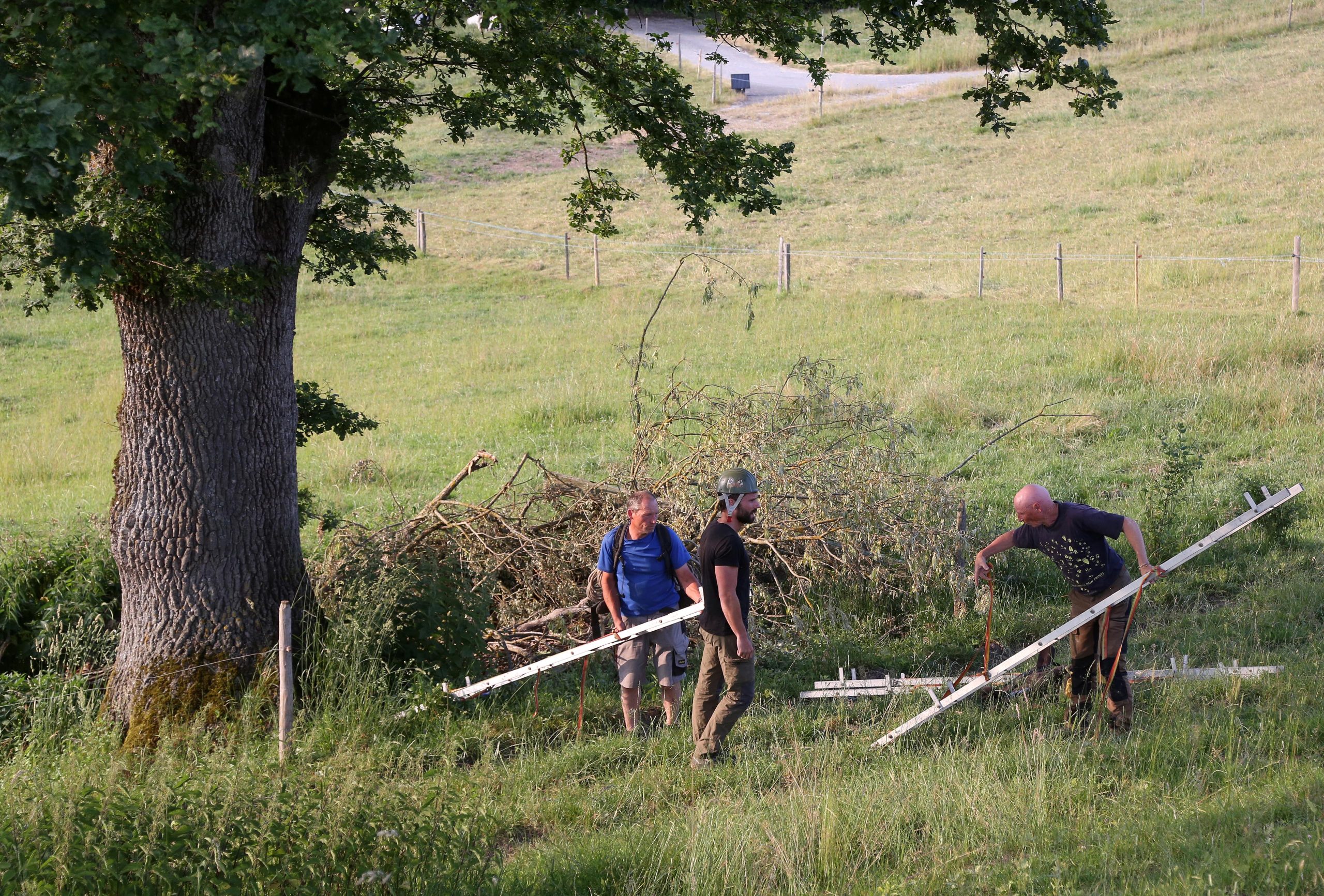
Tree climbers during ladder assembly (photo A. Aebischer)
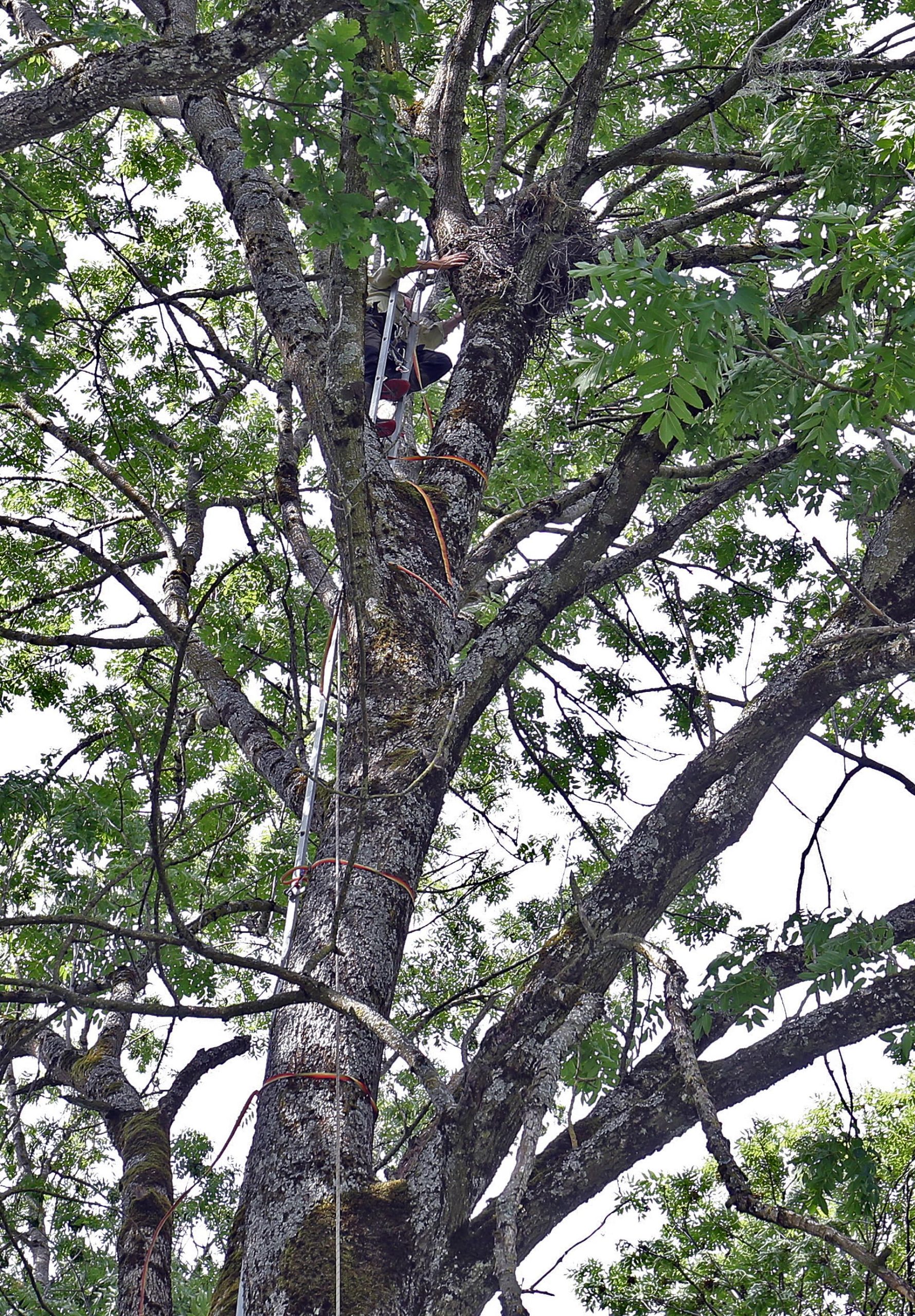
Red kite nest in the canton of Fribourg (photo A. Aebischer)
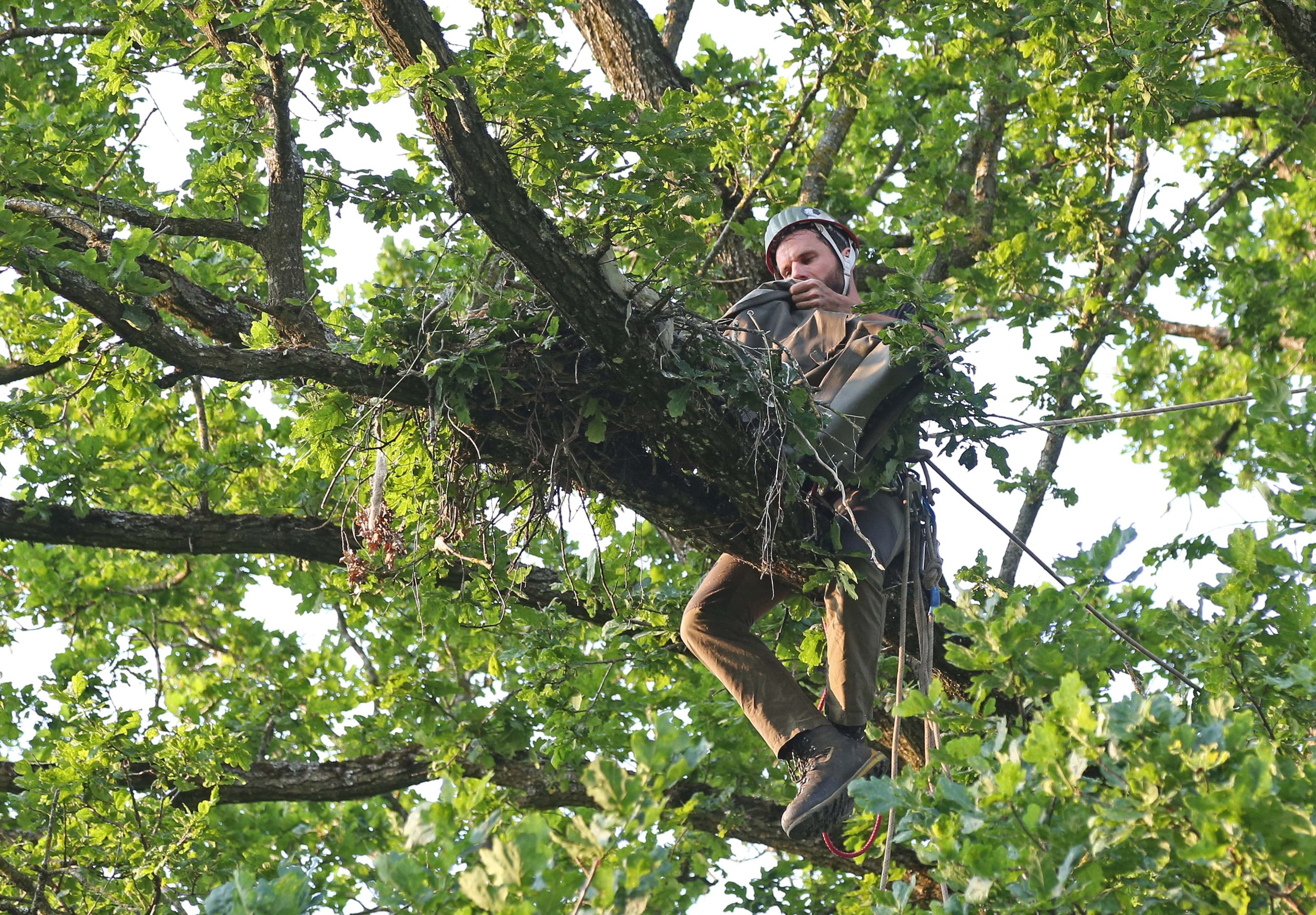
Tree climber during the sampling of a young red kite in the canton of Fribourg (photo A. Aebischer)
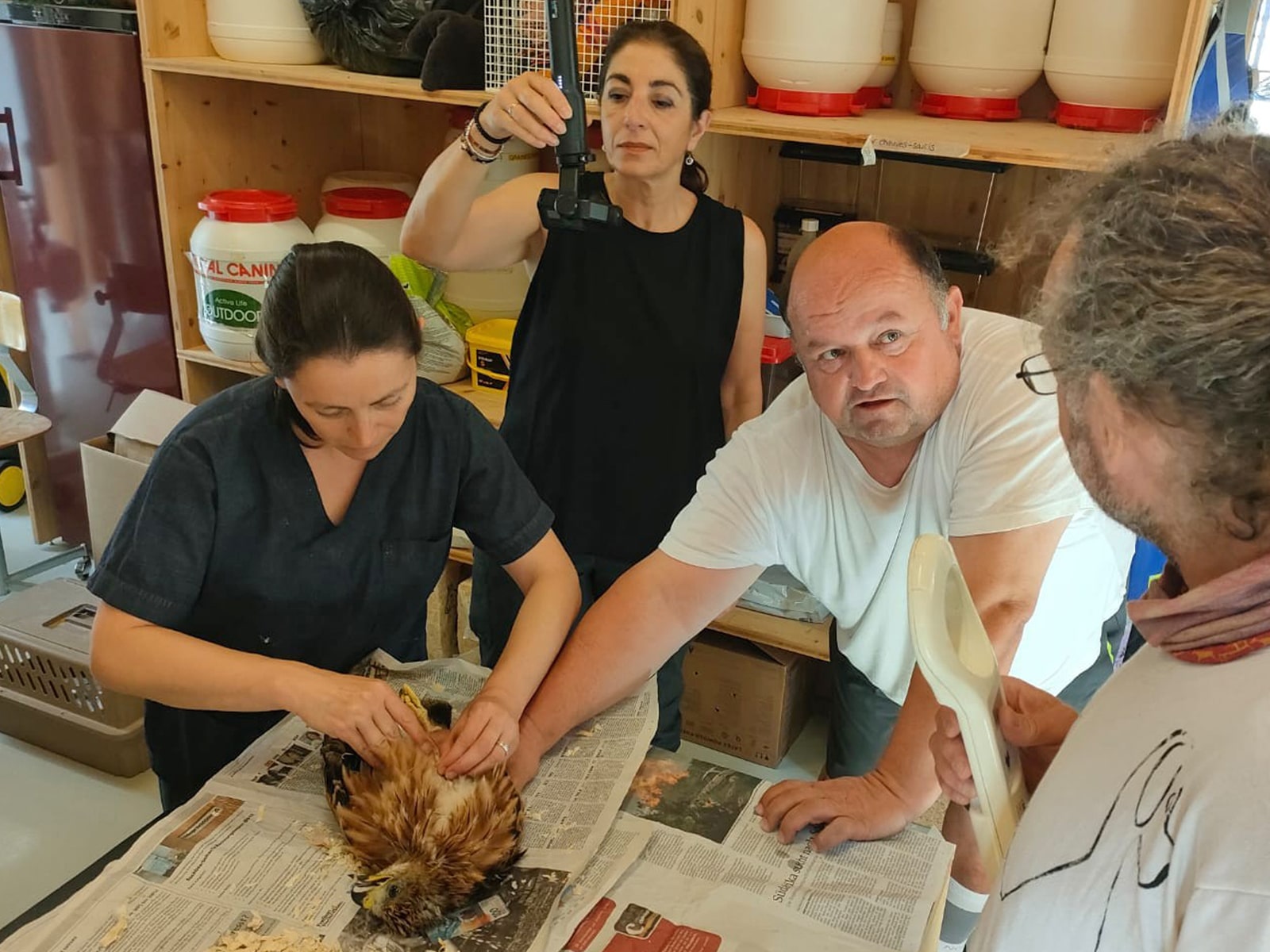
Veterinary examination, microchip application and colored rings before transfer to Italy (photo E. Manghi)
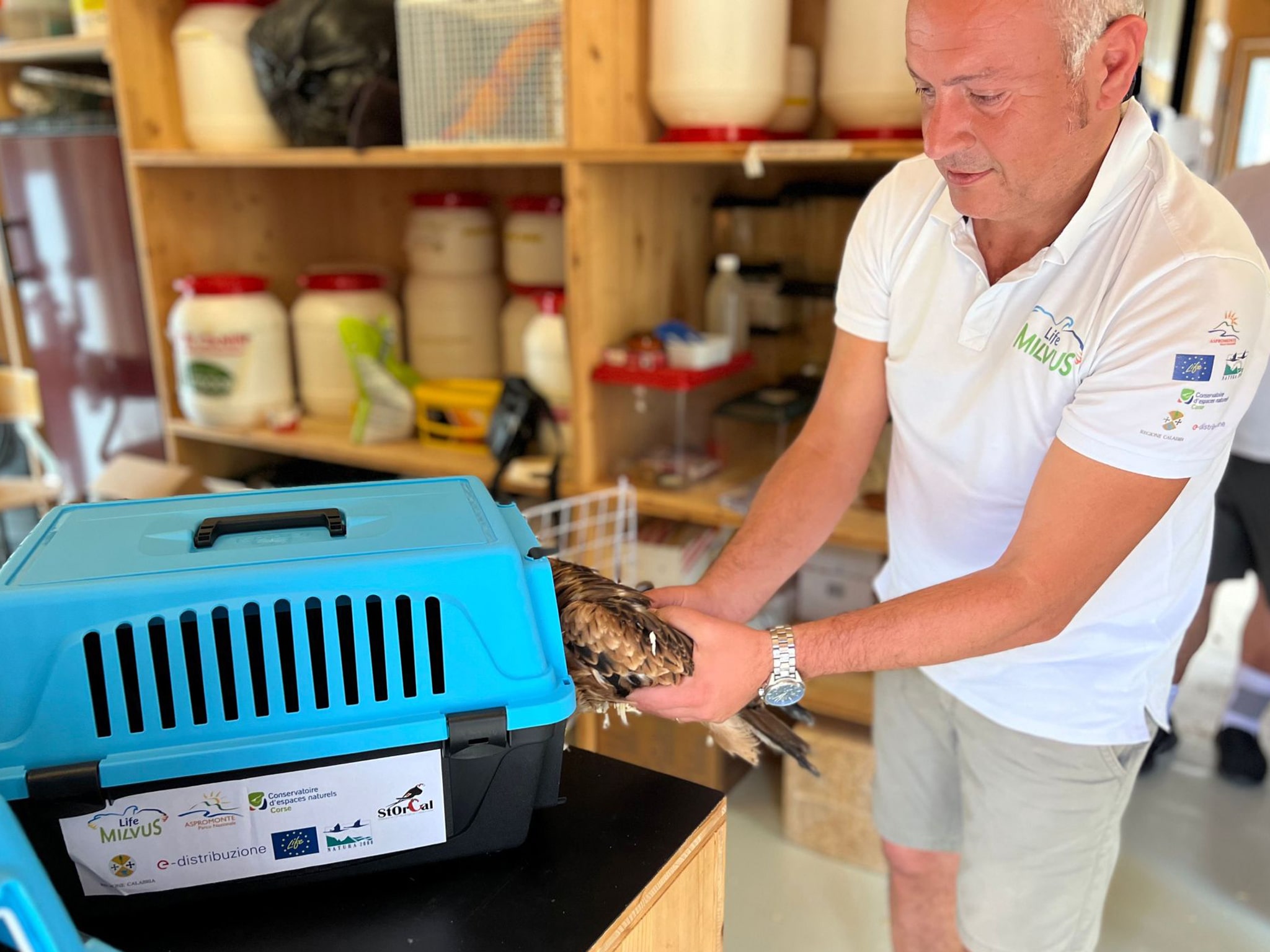
Departure of young red kites from Freiburg (photo P. Storino)
